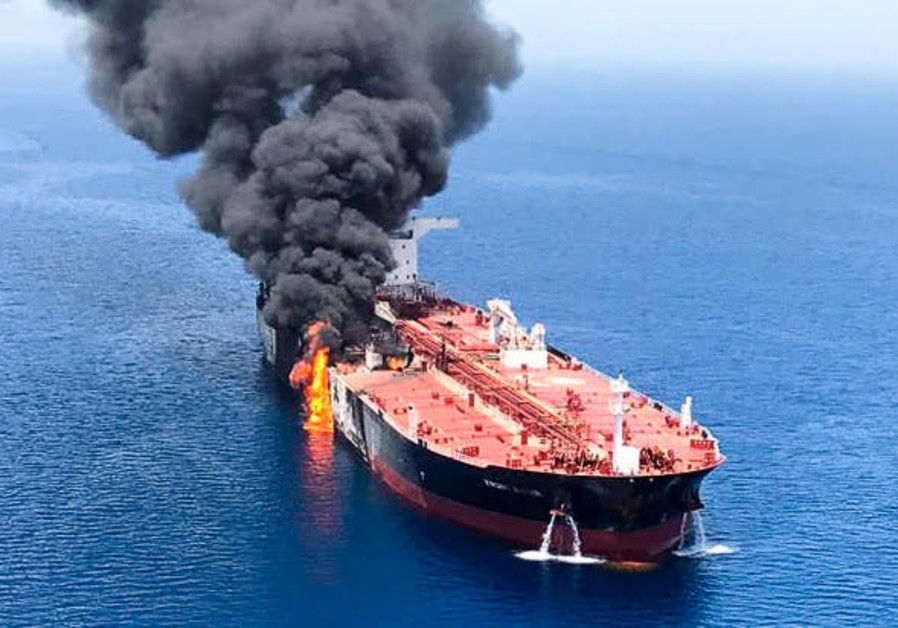US Secretary of State Mike Pompeo said on Thursday the attack on two oil tankers on June 13 was one in a list of Iranian and Iranian-backed attacks over the last month.

Saudi Arabia and Britain agreed with the United States assessment that Iran was behind the suspected attacks on two oil tankers in the Gulf of Oman.
US Secretary of State Mike Pompeo said on Thursday the attack on two oil tankers on June 13 was one in a list of Iranian and Iranian-backed attacks over the last month. It was a “clear threat to peace, security and freedom of navigation,” he said, asserting that Iran was disrupting world oil markets and that the international community condemns the assault.
“We have no reason to disagree with the secretary of state. We agree with him,” Saudi Minister of State for Foreign Affairs Adel al-Jubeir told CNN on Thursday. “Iran has a history of doing this.”
Britain also shares the US government’s assessment that Iran is to blame for two attacks on oil tankers in the Gulf of Oman on Thursday, a source at Britain’s foreign ministry said, when asked about the US assessment, declining to give further details.
The United Kingdom also warned Iran that these actions were “deeply unwise,” Foreign Secretary Jeremy Hunt said.
“This is deeply worrying and comes at a time of already huge tension. I have been in contact with (US Secretary of State Mike) Pompeo and, while we will be making our own assessment soberly and carefully, our starting point is obviously to believe our US allies,” Hunt said in a statement.
“We are taking this extremely seriously and my message to Iran is that if they have been involved it is a deeply unwise escalation which poses a real danger to the prospects of peace and stability in the region,” he added.
The attacks on oil tankers in the Gulf of Oman and on a Saudi airport are a ‘major and dangerous escalation’ that requires the international community to scramble to protect regional stability and security, the United Arab Emirates’ Minister of State for Foreign Affairs said on Thursday.
“Wisdom and collective responsibility are needed to prevent more escalation,” Anwar Gargash said in a Twitter post.
Meanwhile, Iran rejected the US claim that they were involved in Thursday’s tanker attacks at the United Nations on Thursday.
“Iran categorically rejects the US unfounded claim with regard to 13 June oil tanker incidents and condemns it in the strongest possible terms,” Iran’s mission to the United Nations said after Washington blamed Tehran for the attacks.
The attacks began after 6 a.m. in the morning when the US Fifth Fleet heard a distress call from a tanker in the Gulf of Oman that had exited the Strait of Hormuz. Forty-five minutes later another distress call was made.
Two tankers, the Kokuka Courageous, which had left the Saudi Arabian port of Al Jubail on June 10, and the Front Altair, which had left UAE port of Ruwais with 75,000 tonnes of Naphta on board, were in damaged by explosions. The Kokuka Courageous had been attacked twice, according to numerous reports, while the Front Altair was on fire and its starboard side blackened from the bridge to half-way down its lengthwise bulkhead.
As reported by The Jerusalem Post
